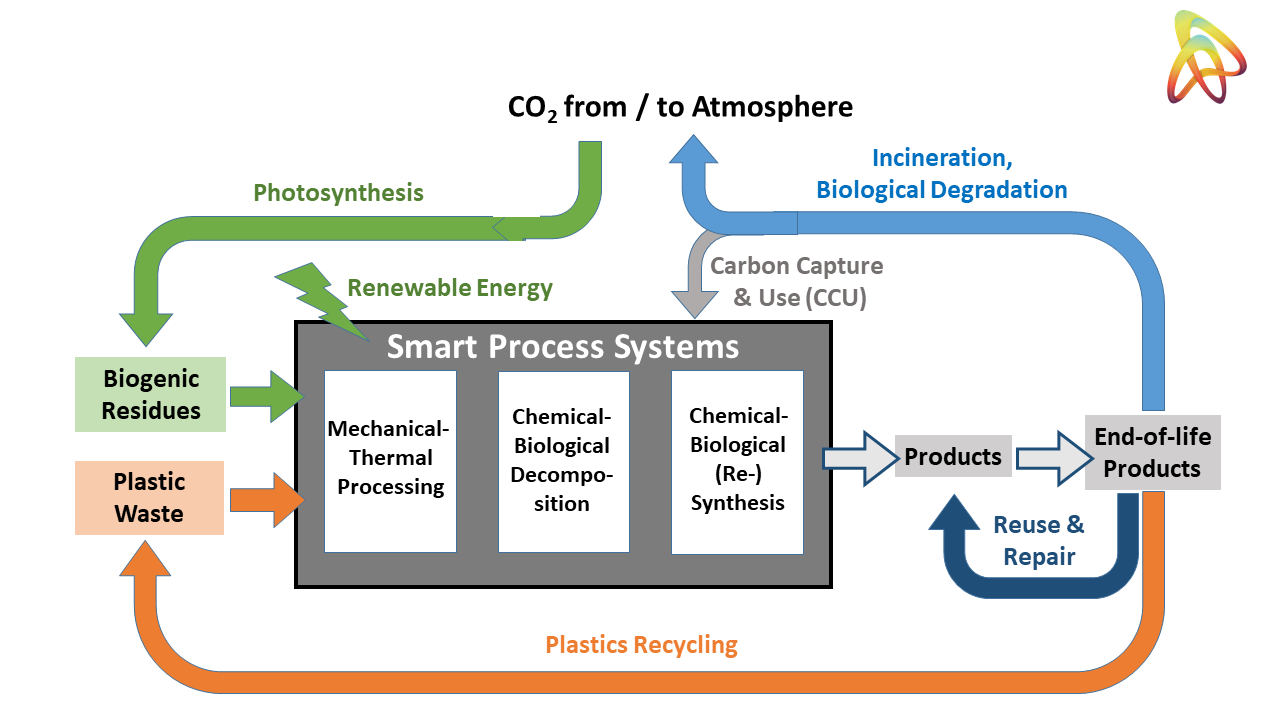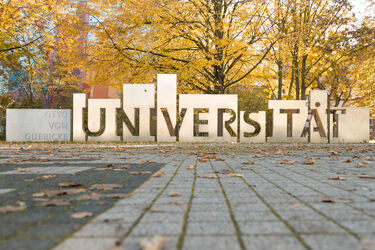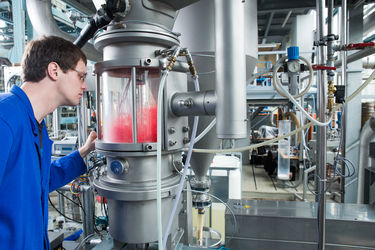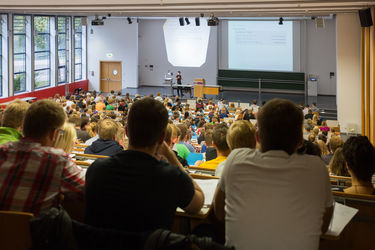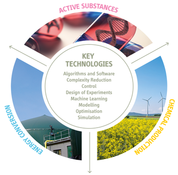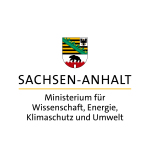SmartProSys
Smart Process Systems for a Green Carbon-based Chemical Production in a Sustainable Society
Welcome to the website of the Research Cluster SmartProSys! Here you can find current information about our research on smart & sustainable chemistry and circular economy.
The SmartProSys research initiative aims to replace fossil raw materials in chemical production with renewable carbon sources, thus contributing to a carbon-neutral society. It follows a system-oriented strategy and investigates resource-efficient degradation and synthesis strategies at process level, intelligent catalytic conversions at molecular level, and economic and societal impacts at a higher system level. The complexity of the system requires the development of powerful computational and machine learning methods for the design, simulation, optimization and control of the system. SmartProSys involves researchers from the fields of systems-oriented process engineering, chemistry, mathematics, logistics, political science, and psychology.
If you want to receive updates on SmartProSys, please subscribe to our newsletter.






